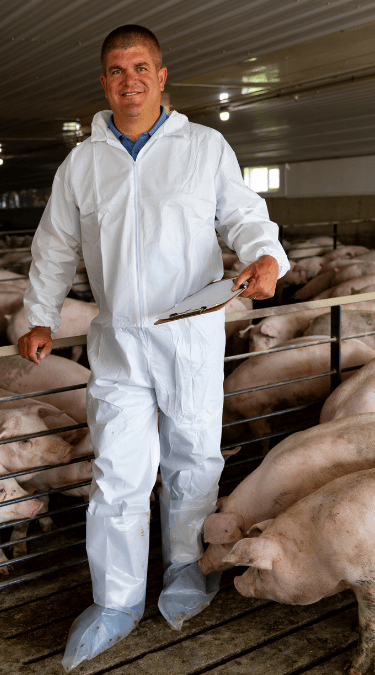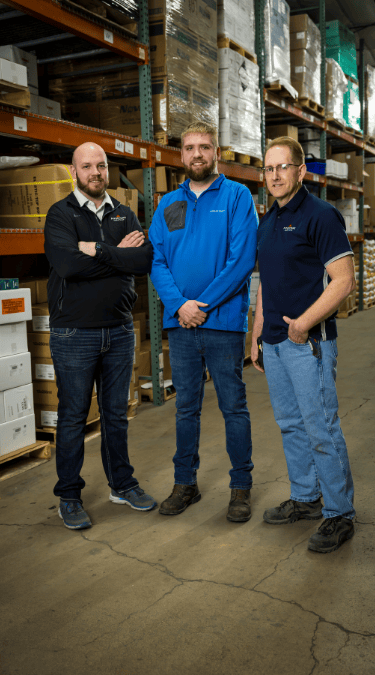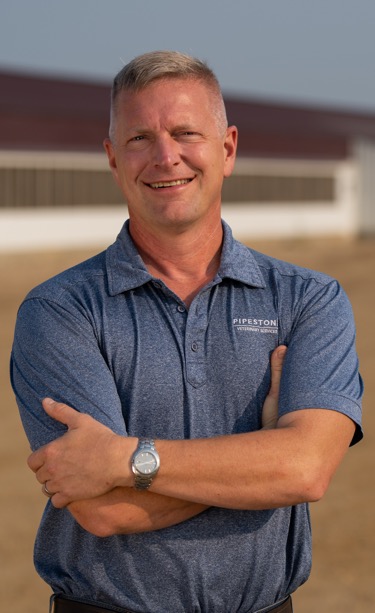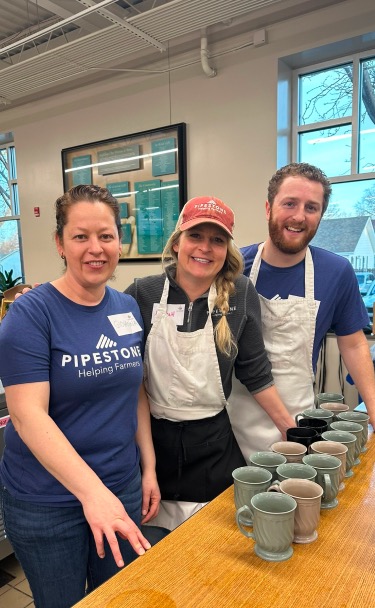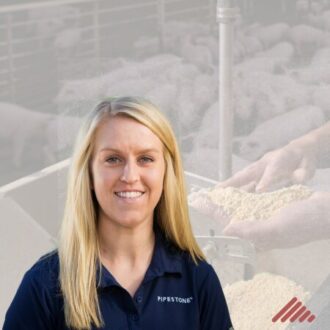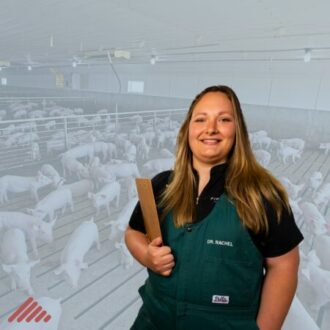Hemolytic Escherichia Coli (E. coli) is a challenging pathogen due to its high morbidity and high mortality in weaned pigs. It causes severe diarrhea and sudden death. Our tools to control and reduce hemolytic E. coli are limited and unfortunately becoming less effective due to antimicrobial resistance. Acidification of drinking water for swine has been shown to be an effective tool in the prevention and control of hemolytic E. coli. However, the question remains, how low should the pH go?
This summer our veterinary intern, Carly Bates, completed a study to determine the growth of E. coli at varying pH levels. The study was completed in two phases: phase one to reach the target pH levels of media without contamination and phase two for growing E. coli at varying pH levels.
After proper pH levels had been produced in each of the tryptic soy broth (TSB) containers (3,4,5,6 and 7pH) one colony of the E. coli isolate was obtained on an inoculating loop and placed in each of the six TSB and swirled vigorously. TSB without lactic acid was inoculated and plated as a control. The E.coli used was an F18 strain isolated from a clinical case where pigs experienced diarrhea and sudden death. At 24 hours, the TSB containers were removed from the incubator and diluted to 1:10 – 1:100,000 dilutions. These dilutions and the original inoculum were plated using .05 mL of the solution spread evenly over the plate with an inoculation loop. Plates were then incubated and evaluated at 12 hours.
Results
What are the results of the study? All plates at pH of 5, 6 and 7 had noticeable surface growth of E. coli whereas plates at a pH of 3 and 4 had no visual surface growth. Providing evidence that the growth cut-off point is a pH of 4!
When using acidifying products like citric acid or Activate, make sure to use a pH meter to ensure the drinking water at the pig level is 4-4.5pH.

